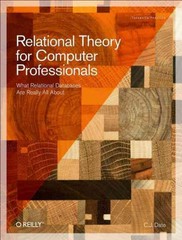Question
#define _GNU_SOURCE #include // standard library functions #include // to access printf, scanf #include // to access sqrt (be sure to compile with -lm for
#define _GNU_SOURCE
#include
#include
#include
#include
#include
#include
#include
#define MAX_STR_LEN 64
// YOU WILL FINISH WRITING THIS FUNCTION
//
// You are given an ASCII string which you can
// assume is NULL terminated (ends with a '0')
// Go through character by character in this string and
// convert the letters to capital versions. If a letter
// is already in caps, keep it that way. Non-alphabetic
// characters you should ignore.
//
// The result should be stored in "newstring," which
// is returned from the function.
//
// ./lab2 -c capitalizeme
//
// Your program should print out:
// CAPITALIZEME
//
// If I give you
//
// ./lab2 -c 01bbbZzZz
//
// I should get
//
// 01BBBZZZZ
//
// Note the C macro above, there is a maximum string length.
// You should ignore any
// HINT: use the ASCII code chart linked on the website
//
static char * // <-- this function returns data of type char* (a memory address that contains characters) capitalize (char * string) { unsigned len = strnlen(string, MAX_STR_LEN) + 1;
char * newstring = malloc(len);
memset(newstring, 0, len);
// YOU FILL THE REST IN // treat newstring like an array. For example, to copy the old string // I might write // int i; // for (i = 0; i < len; i++) { // newstring[i] = string[i]; // } // Remember your goal is to capitalize letters
// FILL ME IN
return newstring; }
// YOU WILL FINISH WRITING THIS FUNCTION
//
// This function accepts a 32-bit *unsigned* integer as
// its argument. You should print this integer out as
// a 32-bit binary number. You should explictly pad to
// the left with zeros (use all 32 bits). Your number
// should have the least significant bit furthest to the right
//
// For example, if I provide
//
// ./lab2 -b 10
//
// You should print out:
// 00000000000000000000000000001010
//
// I can also provide my input in hex format:
//
// ./lab2 -b 0xffff0001
// 11111111111111110000000000000001
//
// ./lab2 -b 0x01234567
// 00000001001000110100010101100111
//
//./lab2 -b 0xdeadbeef
// 11011110101011011011111011101111
//
// HINT: consider using shifts (<< and/or >>)
// HINT: you will want to use printf
// HINT: don't forget to put a newline after your bits!
//
static void
to_binary (unsigned n)
{
// FILL ME IN
return;
}
// YOU WILL FINISH WRITING THIS FUNCTION // // This function accepts a *signed* 32-bit integer. // You are meant to return the number with all the bits // flipped. You do not need to print it (the printing will // be done for you). // // HINT: a certain logical operator will help here // static int flip_bits (int x) {
// FILL ME IN
return 0; // you will change this to return something else }
static void usage (char * prg) { printf(" Usage: %s [-c
int main (int argc, char ** argv) { int c; char * string; int flipee; unsigned b;
opterr = 0;
if (argc < 2) { usage(argv[0]); return 1; }
while ((c = getopt(argc, argv, "f:b:c:")) != -1) { switch (c) { case 'f': flipee = strtol(optarg, NULL, 0); printf("0x%08x ", flip_bits(flipee)); break; case 'b': b = (unsigned)(strtol(optarg, NULL, 0)); to_binary(b); break; case 'c': string = optarg; printf("%s ", capitalize(string)); break; case '?': { if (optopt == 'c' || optopt == 'b' || optopt == 'f') { fprintf(stderr, "Option '-%c' requires an argument! ", optopt); usage(argv[0]); return 1; } else if (isprint(optopt)) { fprintf(stderr, "Unknown option '-%c' ", optopt); usage(argv[0]); return 1; } else { fprintf(stderr, "Unknown option character '\\x%x'. ", optopt); usage(argv[0]); return 1; } } default: usage(argv[0]); return 1; } }
return 0; }
Step by Step Solution
There are 3 Steps involved in it
Step: 1

Get Instant Access to Expert-Tailored Solutions
See step-by-step solutions with expert insights and AI powered tools for academic success
Step: 2

Step: 3

Ace Your Homework with AI
Get the answers you need in no time with our AI-driven, step-by-step assistance
Get Started


